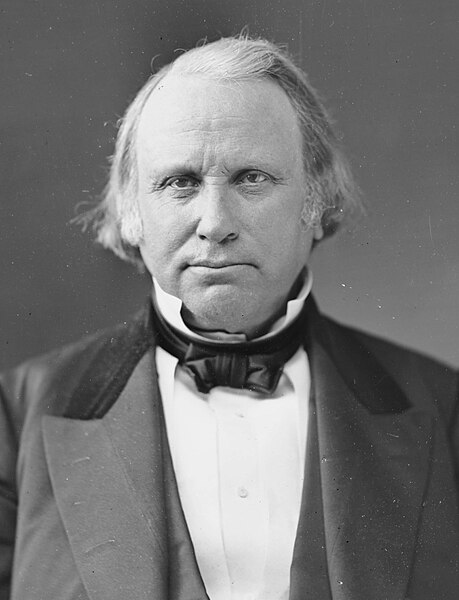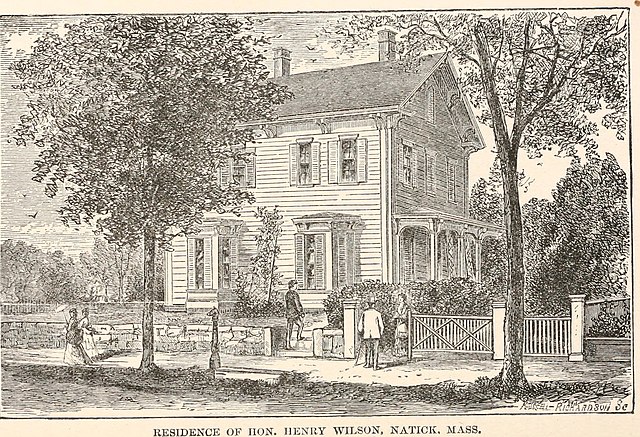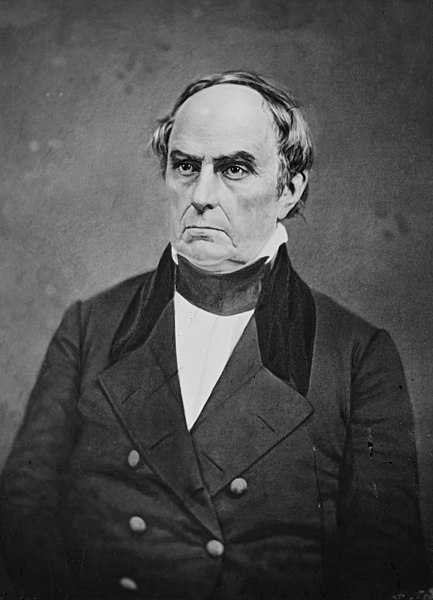Henry Wilson was an American politician who was the 18th vice president of the United States from 1873 until his death in 1875 and a senator from Massachusetts from 1855 to 1873. Before and during the American Civil War, he was a leading Republican, and a strong opponent of slavery. Wilson devoted his energies to the destruction of "Slave Power", the faction of slave owners and their political allies which anti-slavery Americans saw as dominating the country.
Wilson in 1873
Henry Wilson's shoeshop in Natick, Massachusetts
Henry Wilson's Natick home.
Abolitionist and Free Soil Party leaders Charles Sumner, Henry Ward Beecher, Wendell Phillips, William Lloyd Garrison, Gerrit Smith, Horace Greeley, and Henry Wilson.
Whig Party (United States)
The Whig Party was a political party that existed in the United States during the mid-19th century. Alongside the slightly larger Democratic Party, it was one of the two major parties in the United States between the late 1830s and the early 1850s as part of the Second Party System. Four presidents were affiliated with the Whig Party for at least part of their terms. Other prominent members of the Whig Party include Henry Clay, Daniel Webster, Rufus Choate, William Seward, John J. Crittenden, and John Quincy Adams. The Whig base of support was centered among entrepreneurs, professionals, planters, social reformers, devout Protestants, and the emerging urban middle class. It had much less backing from poor farmers and unskilled workers.
Henry Clay, a founder of the Whig Party in the 1830s and its 1844 presidential nominee
Daniel Webster, a leading Whig from New England
William Henry Harrison, a two-time presidential candidate who became the first Whig president in 1841 but died just one month into office
Zachary Taylor served in the Mexican–American War and later won the 1848 presidential election as the Whig nominee.








